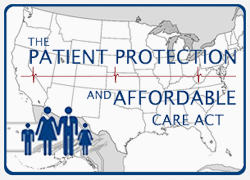 The wheels may be starting to come off the Obamacare train as it rolls out nationally. But California Democrats are more interested in greasing the skids than preventing what critics fear will be a train wreck.
The wheels may be starting to come off the Obamacare train as it rolls out nationally. But California Democrats are more interested in greasing the skids than preventing what critics fear will be a train wreck.
SB 639, by Sen. Ed Hernandez, D-West Covina, is one of several bills making their way through the Legislature that are designed to implement in California the federal Patient Protection and Affordable Care Act. It is scheduled for consideration by the Assembly Health Committee on Tuesday. SB 639 would:
—Limit annual out-of-pocket expenses to $6,050 for single coverage, according to the bill’s legislative analysis (Hernandez says it’s $6,250), and approximately $13,000 for a family.
—Limit deductibles for small group plans to $2,000 for an individual and $4,000 for a family.
—Require coverage to include the four “metal” tiers in Obamacare: bronze (covering 60 percent of medical costs), silver (70 percent), gold (80 percent) and platinum (90 percent).
 —Prohibit insurers from offering anything other than a standardized insurance plan in the individual market.
—Prohibit insurers from offering anything other than a standardized insurance plan in the individual market.
The California Chamber of Commerce opposes SB 639, asserting on its bill priority list that it “[e]liminates lower-priced plans, inhibits competition and innovation, and leads to less affordable coverage for California businesses and their employees.”
The legislation is also opposed by the insurance industry. Although Covered California, which is running the insurance exchanges, announced on Wednesday that 12 insurance companies have signed up to provide coverage in the individual market and six companies will provide insurance for small businesses.
“Covered California and the insurance companies participating in our marketplace have worked hard to secure these contracts, which will mean affordable health insurance plans for millions of people who currently have no coverage or whose coverage is too expensive,” said Covered California Executive Director Peter Lee in a press release. “We are proud of the product mix, the robust provider network and the lower-than-expected premiums.”


No comments:
Post a Comment